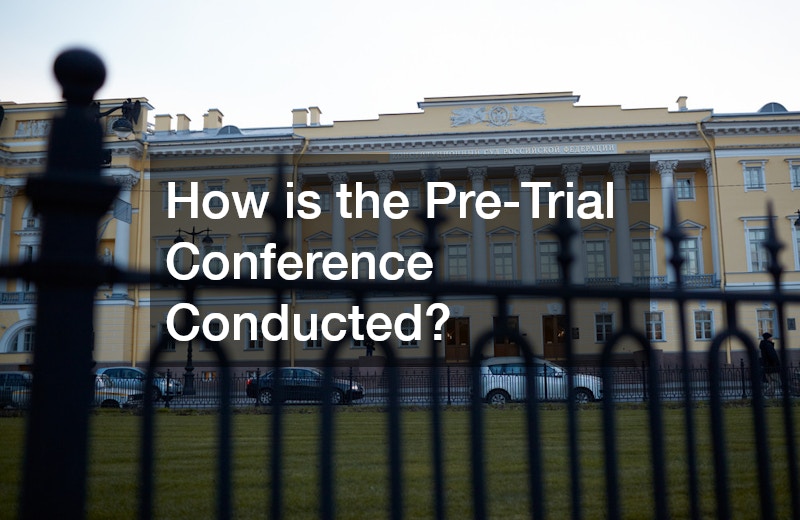This article explores the key aspects of a civil procedure before trial, providing readers with a comprehensive understanding of what to expect and prepare for. The journey through civil litigation involves multiple stages, each critical to the outcome of a case. Here, we break down the most frequently asked questions to help demystify the process.
What is the Purpose of Pre-Trial Procedures?
Organizing the Case Structure
Pre-trial procedures serve to structure a case effectively, ensuring all elements are adequately prepared and organized for trial. This preparation involves compiling necessary documents, evidence, and witness lists to support a party’s argument in court.
By organizing the case, pre-trial procedures reduce the chances of procedural delays and ensure smoother trial proceedings. This meticulous approach aids both the court and the parties involved, making the judicial process efficient and manageable.
The purpose also extends to allowing the legal representatives to refine their strategies based on gathered evidence. This refinement increases the opportunity for a favorable outcome by foreseeing potential objections and preparing responses in advance.
Facilitating Settlements
Pre-trial procedures often include negotiations between parties, which can facilitate settlements before the trial begins. This negotiation reduces litigation costs and time that would be spent in court, benefiting both parties.
By encouraging early settlements, pre-trial procedures help alleviate the court’s caseload, allowing judges to focus on cases that cannot be otherwise resolved. It serves the public interest by freeing up judicial resources for more complex disputes.
Effective communication during pre-trial can highlight areas of agreement and foster compromise, encouraging a mutually acceptable resolution. This often leads to voluntary dismissals, withdrawal of cases, or legally binding settlements.
What are the Key Stages of Civil Procedure Before Trial?
Pleadings Stage
The pleadings stage is crucial as it sets the tone for the entire litigation process. During this stage, plaintiffs and defendants submit formal written statements outlining their claims and defenses.
This documentation is the foundation upon which the rest of the litigation is built. It includes complaints, answers, counterclaims, and sometimes replies, forming the basis for the discovery process.
The specificity and clarity of pleadings can significantly influence the direction of the case. Well-drafted pleadings can narrow issues, focusing the litigation and discovery phases.
Discovery Process
Discovery is an essential pre-trial stage where parties exchange relevant information. This process aims to prevent surprises during trial by revealing all pertinent facts and documents.
It includes various tools like interrogatories and depositions, facilitating comprehensive evidence collection. Through these methods, parties gain insights into the opposing party’s case and prepare their arguments accordingly.
Discovery can be extensive and time-consuming, demanding thoroughness and strategic acumen. Challenges often arise, requiring skilled navigation through complex legal and factual terrains.
How Does the Discovery Process Work?
Types of Discovery
Common discovery methods include interrogatories, which are written questions that the opposing party must answer. Depositions involve oral questioning of witnesses, allowing attorneys to assess credibility and gather testimonies.
Requests for admissions serve to confirm specific facts or documents, narrowing the issues for trial. By clarifying disputed elements, these tools help streamline the litigation process.
The scope and extent of discovery are governed by rules of procedure and controlled by the court to prevent abuse. This ensures a fair and balanced exchange of information.
Discovery Challenges
Challenges during discovery often manifest as disputes over the scope or relevance of requested information. Parties may resist disclosing certain documents, citing privilege or privacy concerns.
Resolution of discovery disputes usually involves court intervention, where a judge may issue orders compelling or limiting certain requests. Effective dispute management is integral to maintaining the flow of proceedings.
The discovery stage demands astute negotiation skills and strategic planning. Attorneys work tirelessly to mitigate obstacles and harness the full potential of available information.
What Role Do Motions Play in Civil Procedures?
Types of Pre-Trial Motions
Pre-trial motions are procedural requests made to the court to resolve specific issues before trial. Motions to dismiss and motions for summary judgment are common types of motions intended to resolve cases without a full trial.
A motion to dismiss challenges the legal sufficiency of a claim, potentially ending a case based on procedural or substantive grounds. In contrast, a motion for summary judgment asserts that there are no factual disputes remaining, warranting a judgment as a matter of law.
The practical use of motions dictates the pace and direction of litigation. Successfully leveraging these can focus the trial on substantive issues or conclude litigation early, saving resources for all involved.
Strategic Use of Motions
Attorneys employ pre-trial motions tactically to shape the litigation landscape. Strategic motions can limit issues, exclude evidence, or even dismiss a case altogether.
This strategic use can hinder the opponent’s case by challenging weak legal or factual bases, forcing settlements, or encouraging favorable rulings. By carefully timing and crafting motions, attorneys strengthen their litigation position.
The fact remains that motion practice requires a profound understanding of legal principles and foresight. This underscores its critical role in an effective pre-trial strategy.
How is the Pre-Trial Conference Conducted?
Objectives of the Pre-Trial Conference
The pre-trial conference is organized to address procedural issues and foster case management. Its goal is to set the trial agenda, including schedules and evidence presentation.
By clarifying legal and factual disputes, the conference promotes efficiency and case resolution. Judges use this opportunity to encourage settlements and streamline trial proceedings.
Outcomes of the Pre-Trial Conference
Outcomes from a pre-trial conference may include complete or partial settlements and revised trial preparation plans. It can result in agreed-upon timelines, evidence stipulations, or procedure clarifications.
Clarification of trial issues often leads to a refined focus on material aspects, enhancing trial productivity. Successful conferences may also result in concrete agreements on facts, simplifying trial complexities.
.







